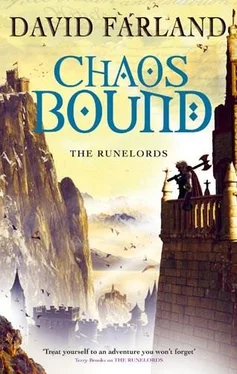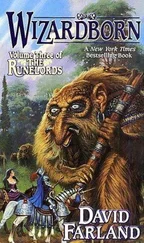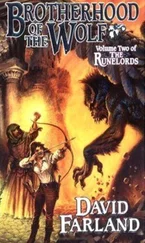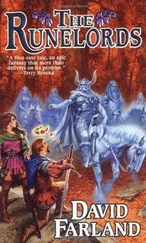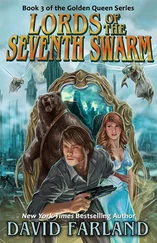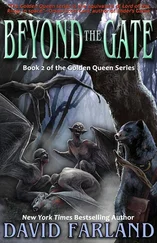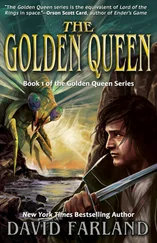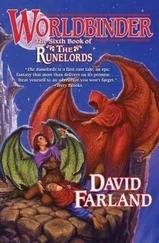“Get our Dedicates all together,” Warlord Hrath said. “They will be easier to protect if they’re all in one place.”
So the townsfolk made up beds down on the arena sands and in the tunnels. Men took up guard positions at the doors, and Warlord Hrath set their little champion Hilde up in the midst of the Dedicates. She was ringed by men and women who were blind and deaf. Those who had given grace were curled in little balls, their muscles spasming with no way to relax. Those who had given strength had gone flaccid and weak. Those who had granted their wit had become morons, drooling creatures that leaked into their own britches and found joy in the warmness thereof.
The arena became a mad house, a sick ward, while mists and fog floated among the torches.
Children ran rampant.
No sooner had the doors to the arena been bolted and a few torches lit in their sconces than a cry rang out.
Some who had granted endowments of metabolism and fallen into a magic slumber suddenly wakened. Some who were blind could suddenly see.
“Lord Theron is dead!” a man shouted. “My lord has fallen!”
By ancient custom, when a lord died in battle, any who had granted endowments of wit to him would tell the tale of his fall, for such Dedicates had shared memories of their lord’s last moments and could often recall bits and snatches of their lord’s demise.
Thus, two men and two women rose up and cried, “Theron is dead, long live his memory!”
No sooner than they had spoken, than other Dedicates began to revive, and cries rose up. “Lady Gwynneth has passed!” someone shouted. “Lord Brandolyn is gone!”
Too fast, Myrrima thought. Our champions are dying far too fast.
“They died in a cave,” one man cried, “while wyrmling giants towered over them.”
A small woman, old and frail, called, “They came, runelords of great power—five in number, to bar our lords’ way.”
“They knew the name of Ox Port!” a young woman shouted. “They breathed out threats against the Dedicates here. They say that their champions are coming to take vengeance!”
“With a meat hook they grasped our Theron by the throat,” a handsome young man shouted. “With an ax they felled him.”
There was silence among the crowd, astonishment at the news, and Myrrima looked to Warlord Hrath. His eyes darted about as he studied the entrances to his arena, like a cornered animal.
“Our lord was a kind man,” the first of the sages said. “His last thoughts were of his wife and family. His last fear was for our safety.”
There was a deep silence during which Myrrima could hear her heart pounding and little else. She looked around the room. Draken had a nice long sword that Hrath had given him. Myrrima had a war bow and some arrows. Rain had a short sword, and Sage had nothing at all.
For long seconds, Myrrima waited for more of the Dedicates to revive, but none did.
Aaath Ulber is still alive, she realized. He has made it past the wyrmling guard by now.
But she knew that she could be wrong. He could have been knocked senseless, left bound and gagged. The fact that he was alive did not mean that he was safe.
In the Room of Whispers, Crull-maldor took reports of the enemy movements. “They’re nearing the laboratories!” a voice shouted through one glass tube, while another warned, “They’re in the butchery!”
The reports came so rapidly on the heels of one another that they made no sense. “Which is it,” Crull-maldor demanded, “the laboratories or the butchery?”
But neither of her captains answered. By then, she surmised, both had been slaughtered, and now new reports issued from the communications tubes, a myriad of conflicting whispers.
The human champions were moving through the fortress with maddening speed; Crull-maldor could not keep up. In less than ten seconds they had cleared the butchery, she suspected, and spent another minute racing through the halls. It had been fifteen minutes since they’d breached the entrance.
“Drop all of the portcullises,” she said. “That will slow them down.”
The problem was that the humans had come in through the back gate and now were charging up through the warrens, level after level. The wyrmling horde could not use smoke to defend themselves from such an attack.
Though she might close the portcullises, each level was controlled from the level below. The humans would soon figure out how to open the gates above, and her tactic would barely impede their progress.
But that was all she wanted at the moment: to slow them.
Crull-maldor had not anticipated this attack. She had expected Aaath Ulber to be reasonable. Humans loved their families, would do anything to protect them. That much she knew.
Yet by his actions, Aaath Ulber had sentenced his own wife and children to death.
Already the humans had moved through much of the lower tunnels, slaughtering thousands of wyrmling women and children. Soon, they might reach her Dedicates’ keep.
The humans would slaughter the Dedicates, of course. It was the rational thing to do, and once the Dedicates were gone, her wyrmlings would be left defenseless.
This man could destroy me, Crull-maldor thought. All of my years of work will have been wasted. Lord Despair will punish me, drain my soul.
Crull-maldor did not know what happened to the consciousness of a spirit once it died. There were two kinds of death, the death of a body and the death of a spirit. Despair knew how to kill both.
Yet it was whispered among the liches that life never ended. At the death of the body, the spirit wandered into its own world. At the death of the spirit, it was said that the consciousness traveled beyond the spirit world, into a realm of mist. There, life continued, but a life unfathomable to her.
She did not know if she believed in life beyond the spirit world. She suspected that the death of her spirit would be the end of her.
Crull-maldor considered whether to attack Aaath Ulber herself, but dared not try it. He moved too swiftly for her now, and he bore weapons that could destroy even a lich lord. But Crull-maldor was poised to put an end to the threat. All that she had to do was kill Aaath Ulber’s Dedicates.
This is just a race to see who can slaughter whose Dedicates first, she reasoned.
Crull-maldor reached out with her consciousness and touched the mind of one of her fell warlords, a man named Zil, who had hundreds of endowments to his name.
She saw through his eyes: a wooded glen of dark pines, just outside Ox Port. He was upon a tall slope, looking down, and Crull-maldor could see a great wall of fog overtaking the village, rolling in from the sea.
With Zil’s endowments of hearing, the sounds of the town came preternaturally clear: the shouts of children, the songs of the facilitators as they garnered endowments.
All around him, his troops hid, crouching motionless in the shadows.
“Take your runelords into the village,” Crull-maldor whispered. “Now is the time. Cut down every human in the village.”
Zil barked one short command to his troops. “Kill!” and the wyrmling runelords went leaping out from under the trees, racing toward town, silent and deadly.
The red haze melted from before Aaath Ulber’s eyes gradually, even as he continued to fight. He leapt on the back of a falling wyrmling soldier, slit the man’s throat, and rode him to the ground. Wyrmling women and children were crying out in terror, trying to flee. But the corridors ahead were packed, and they could not run fast enough.
Indeed, they were like a wall before him, a wall of flesh that blocked his own progress.
His arms ached from fatigue, as did his lungs and back. Great hunger assailed him, and he nearly collapsed, his head spinning from exhaustion.
Читать дальше
